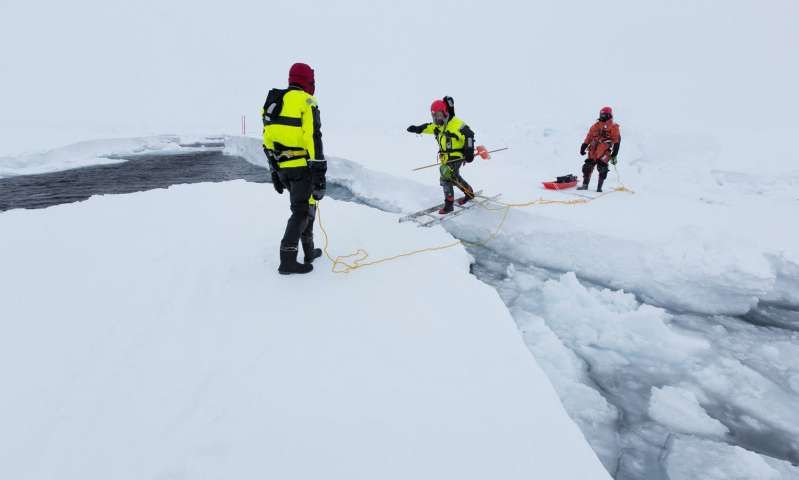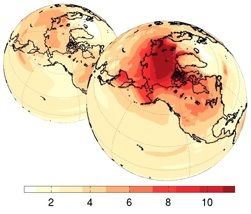Arctic’s Role as Climate Moderator Threatened
Published on by Water Network Research, Official research team of The Water Network in Academic
Scientists have found that the Arctic region’s thinning sea ice is more prone to melting and storms, threatening its role as a moderator of the planet’s climate.
 The researchers reached this conclusion after spending several months last year, much of it on a ship frozen into the ice, as part of the first wintertime expedition to examine the younger, thinner sea ice that typifies the “new Arctic.” They discussed their findings today in the fall meeting of the American Geophysical Union.
The researchers reached this conclusion after spending several months last year, much of it on a ship frozen into the ice, as part of the first wintertime expedition to examine the younger, thinner sea ice that typifies the “new Arctic.” They discussed their findings today in the fall meeting of the American Geophysical Union.
“Many things we experienced took us by surprise,” said Mats Granskog, a research scientist at the Norwegian Polar Institute and chief scientist of the Norwegian young sea ICE, or N-ICE2015 project. “We saw that the new Arctic, with much thinner sea ice only three to four feet thick, functions much differently from the Arctic we knew only 20 years ago, when the ice was much thicker.”
While they can’t specifically link what they saw to climate change, the N-ICE researchers said they worry that the reduced sea-ice coverage and thickness will lead to even more melting, the so-called “Arctic amplification”: 
Half of the solar energy that hits Arctic snow gets reflected back into space. But when the snow is replaced by open water, when “white turns to blue,” most of the energy gets absorbed and in turn helps melt even more ice.
The researchers said what ice is left is particularly vulnerable. The thinner and younger ice works differently, said Granskog. It moves faster, breaks up more easily and is more vulnerable to winds and storms.
The researchers also observed the first phytoplankton bloom under snow-covered ice, as additional light passing through leads, or cracks, triggers its early growth. Traditional Arctic under-ice blooms tend to sink to the deep ocean, sequestering carbon in a sort of “carbon pump.” But this bloom did not sink as much as expected due to a different algae that grew in it.
Such changes could have significant implications for Arctic ecology and the movement of carbon, the researchers said.
Source: Phys.org
Attached link
http://www.youtube.com/embed/M2p6FrAtBcIMedia
Taxonomy
- Water
- Ecology
- Environment
- Climate Change
- Research & Environment
- Climate Change & Sustainability Services
- Environment
- Climate Change
- Environment Network
- Climate